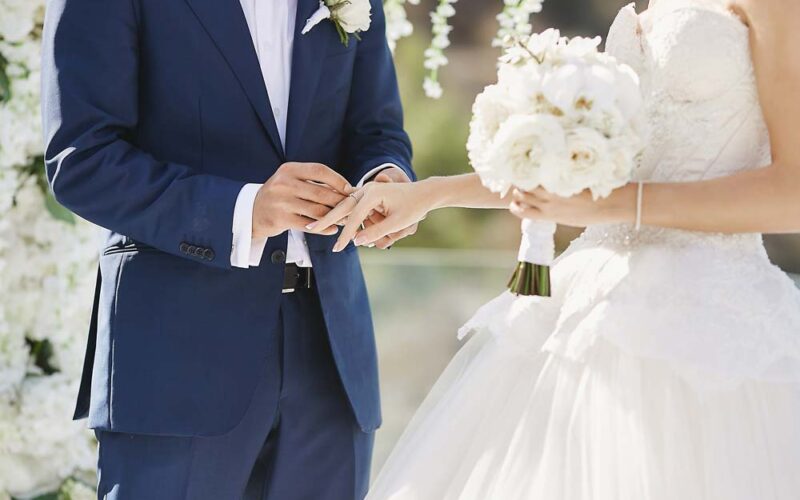Weddings are a very important and special event once in a lifetime. Many couples take a long time to prepare a lot of things, such as dresses, meals, and gifts, while looking forward to the day. However, these days, many brides and grooms cannot have a wedding, or if they can, they hold it in unusual ways due to the influence of COVID-19. How has the wedding changed?
The marriage ceremony before COVID-19
Brides and grooms prepare for the wedding months in advance while consulting with their wedding planners.
At the wedding reception, men wear a lighter suit, like a gray or navy blue, and women wear wedding dresses, especially simple and generous silhouettes. During the party, course meals and drinks are provided for guests. There are many kinds of beverages at weddings, such as wines, cocktails, champagne, and coffee.
In addition, various entertainment activities are done at weddings. Some guests dance and play instruments to liven up the event, while others eat and drink.
After the wedding ceremony, people can enjoy the night with friends and family or book a hotel for a second party. The bride and groom, and guests enjoy a special day even after the reception is over.
Wedding ceremonies after COVID-19
Weddings are severely restricted now due to the influence of the COVID-19 pandemic, which has caused an increasing number of weddings to be either delayed or canceled.
Recent weddings have become smaller than before in consideration of the health and safety of family and friends. The number of people invited to the wedding has also dramatically decreased. People should be careful about these actions even during the special event because they can be transmitted by shaking hands, hugs, and splashes (Brides, 2021).
Dealing with COVID-19 measures at the bridal hall
Weddings during the COVID-19 pandemic carry many risks, so people working at wedding halls are taking certain precautions against infection. As an infection prevention measure, the staff move cocktail hours outdoors and request guests and staff to wear masks and go through PCR tests (Brides, 2022). Moreover, they install acrylic boards in the venue, wear gloves for food service, control the temperature in the room, maintain proper ventilation, and disinfect (Brides, 2021). Wedding planners request vaccination certification to protect the health of guests and staff (Brides, 2022). These measures have been gradually relaxed in 2022, but we still need to continue to implement them.
Conclusion
Our lives have changed a lot compared to before Covid-19, at the same time, the bridal industry was also greatly affected. There were times when the wedding was not possible due to Covid-19, but now it is possible to have a wedding under the restrictions. We need to continue to take infection control measures in order to get an unregulated life a little faster. By doing so, the wedding reception will be as large as ever, and the bride and groom will feel happier than ever before.
References
Brides. 2022. What to Know If You’re Planning a Wedding During COVID-19. [online] Available at: <https://www.brides.com/what-to-know-about-coronavirus-and-wedding-planning-4799160>[Accessed 29 June 2022].
Brides. 2021. 7 Predictions for Weddings in a Post-COVID World. [online] Available at:
<https://www.brides.com/weddings-in-post-covid-world-5096663> [Accessed 29 June 2022].
